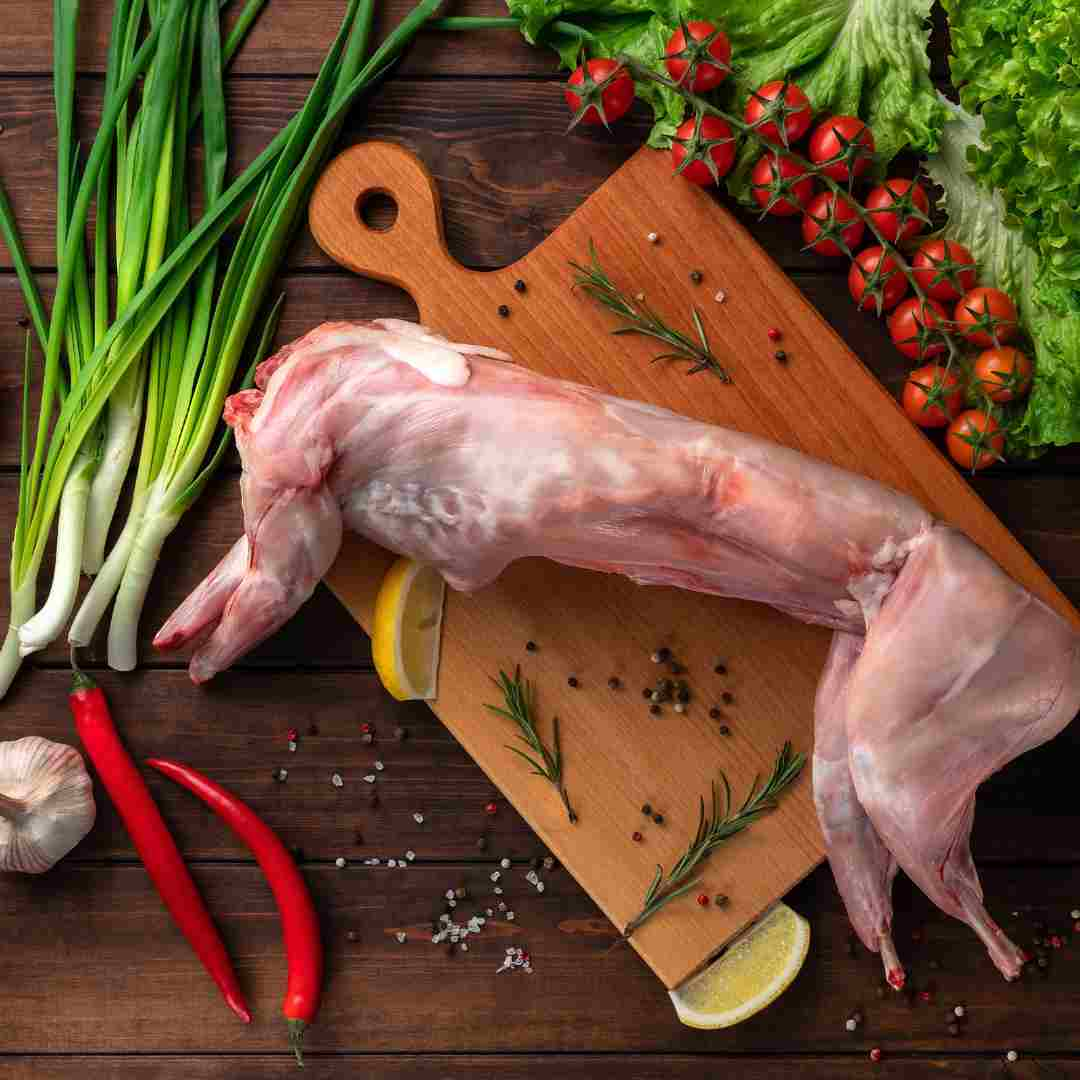Legalities of Selling Rabbit Meat
Selling rabbit meat, a popular protein source, can be profitable. Selling rabbit meat requires meeting several legal restrictions. To stay legal, your business must grasp these standards.
Understand rabbit meat sales laws first. The USDA regulates rabbit meat sales in the US. USDA-approved inspectors must approve every rabbit meat sold for human consumption. The meat is safe to eat after this inspection.
Selling rabbit meat requires USDA inspection, state, and local regulations. Research your state's regulations because they differ. These standards cover meat labelling, packing, and storage.
Finally, rabbit meat sales health and safety requirements must be understood. Rabbit meat must be handled and kept hygienically. This involves adequate refrigeration, storage, and cleaning and sanitising of meat preparation and selling equipment.
You may comply with the law and serve safe and healthy rabbit meat by learning the legal requirements. Research your local laws and follow them. Doing so ensures corporate success and consumer satisfaction.
Selling Rabbit Meat: Benefits You Should Consider
For good reason, rabbit meat is a growing protein source. It's lean and full of vitamins and minerals. Rabbit meat is a sustainable and ethical protein source. Selling rabbit meat can expand your product line and attract new clients.
Rabbit meat has lean protein. Its minimal fat and cholesterol make it healthier than other meats. Iron, zinc, and B vitamins are abundant in rabbit flesh. It's ideal for healthy eaters.
Second, rabbit meat is a sustainable and humane protein. Raising rabbits is simple and inexpensive. They convert feed into protein efficiently, making them environmentally beneficial. Rabbits are also ethical because they are not intensively farmed.
Finally, selling rabbit meat helps diversify your products and attract new clients. Offering rabbit meat can set you apart. It can also attract health-conscious and eco-conscious customers.
In conclusion, rabbit meat can broaden your product line and attract new clients. Its lean, low-fat protein is rich in vitamins and minerals. It's also a sustainable and ethical protein source. For these reasons, selling rabbit meat can boost revenues and attract more clients.
Business Rabbit Meat Sources
Customer happiness and business success depend on excellent rabbit meat. Buying rabbit meat requires numerous actions to ensure quality.
First, research rabbit meat types. Understanding rabbit breeds' meat types is crucial. Consider loin, shoulder, and leg cuts.
Find a trustworthy source. Find reliable vendors with a track record of excellence. Check references and reviews to ensure the supplier is trustworthy.
Third, check meat before buying. Check the meat for deterioration. Discoloration and odours may indicate spoiled meat.
Fourth, evaluate meat prices. Compare rates from providers to find the best bargain on rabbit meat, which is more expensive than other meats.
Finally, consider meat storage and handling. Rabbit meat should be stored in a cold, dry area.
Follow these procedures to source high-quality rabbit meat for your business. To satisfy customers and succeed, do so.
How to Sell Rabbit Meat: Pros and Cons
Selling rabbit meat is contentious and requires careful thinking. For individuals wishing to diversify their diets, rabbit meat provides a lean, nutritious protein source. However, selling rabbit meat requires ethical and practical issues.
Pros
Nutrition: Rabbit meat is lean and high in vitamins and minerals. It's rich in iron, zinc, and B vitamins.
Versatility: Rabbit is utilised in stews, roasts, stir-fries, and curries. It's also popular for red meat-reducers.
Sustainable protein: Rabbits multiply swiftly and require few resources to nurture.
Cons
Ethical Issues: Some consider rabbit meat sales cruel and unethical.
Rabbit meat costs more than chicken or beef.
Rabbit flesh is hard to find.
Finally, rabbit meat sales are complicated. Before selling rabbit meat, there are ethical and practical considerations.

Promoting Your Rabbit Meat Business
1. Create a decent Website: Any business needs a decent website, but rabbit meat businesses need it more. Your website should list rabbit meat types, prices, and contact information. Include product images and testimonials.
2. Promote your rabbit meat business on social media. You can use Facebook, Twitter, and Instagram to communicate business updates, product photographs, and customer interactions.
3. Participate in Local Events: Local events boost your business. You may promote your items at farmers markets, festivals, and other events by setting up a booth.
4. Network with Other Businesses: Local businesses can help advertise your rabbit meat business. Local restaurants, grocery stores, and other businesses may want to sell your products.
5. Give Samples: Offering product samples is a terrific method to attract customers. You can sample rabbit meat at local events.
6. Create a Loyalty Programme: Loyalty programmes reward clients and encourage repeat business. Customers that buy a certain amount of rabbit meat can get discounts or freebies.
7. Advertise: Advertising helps promote your business and reach more people. Advertise in local newspapers, magazines, and online. Create and distribute local fliers.
8. Use Word of Mouth: Word of mouth is a powerful business promotion tool. Encourage customers to tell friends and family about your business. You can also reward customers who refer new clients.